Ureo Egawa
출생 : 1902-05-07, Yokohama, Kanagawa, Japan
사망 : 1970-05-20

Film about the 2-26 Incident.

Yuri is looking forward to marrying her fiancé Minoru. However, a few days before the wedding she falls victim to his brother Takehiko, and against her will, she becomes Takehiko's wife. The day after the wedding, Yuri begins her silent revenge by not talking to her husband. She retains her love for Minoru and never gives herself to Takehiko's embrace again. She also contributes large sums of money from Takehiko's fortune to charity.
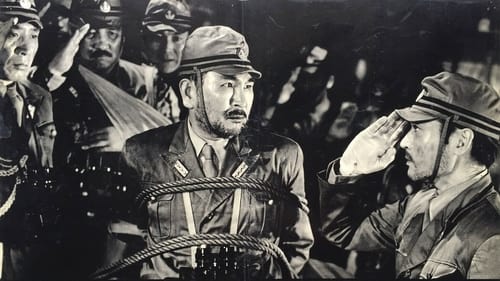
Counsel Shimazu
In 1941, overpopulated Japan faces an economic boycott and its armed forces push further to the south. And despite negotiations between Japan and the U. S. A. war is declared with the attack on Pearl Harbour. Victories follow for Japan on land and sea and her forces push forward to the borders of India. But gradually the tide turns in favour of the Allies and after the atom bombings of Hiroshima and Nagasaki, Japan is compelled to accept the Potsdam Declaration and by the order of the Emperor agrees to unconditional surrender. Under the supervision of the occupation forces the International Military Tribunal opens in Tokyo to try the Japanese war leaders. Established in the cause of justice, and to prevent future aggressive wars the trials drag on for two and a half years. And on December 23, 1948, General Tojo and six other war leaders mount the thirteen steps to the gallows at Tokyo's Sugamo prison.

Japanese film, originally released in two parts.
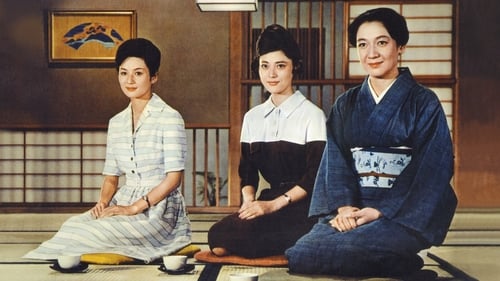
Schoolmate Nakanish
아버지 히라야마는 딸이 성품 좋고 가정적이고 능력 있는 남자를 만날 수 있도록 도움주기를 원한다. 하지만 말이 없고 자식과 살갑게 대하지 않는 히라야마의 성격상 딸은 그런 아버지의 의중을 파악하기 힘들다. 어느 날 딸 세츠코가 결혼할 상대가 있다고 하자 히라야마는 불같이 화를 낸다. 그리고 결혼식에 참석하지 않겠다고 선언한다.

Japanese crime film.

Japanese film.

Navy Minister Saigo

Naniwa Kawashima
Japanese war film based on the true story of Yoshiko Kawashima, played by actress Miyuki Takakura in her film debut.
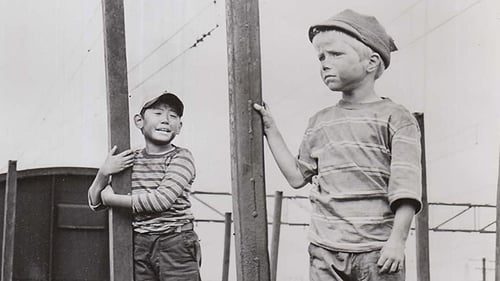
A plane is forced to land at sea just off the Japanese coast. A young American boy is later befriended by a fisherman's son, with the two setting off on an unintended journey across the country.
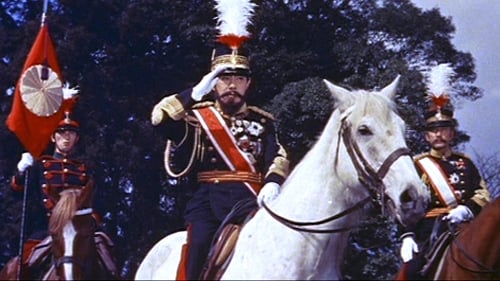
Navy Minister Yamamoto
Meiji Tenno portrayed the ramp up to the Russo-Japan War. In addition to showing the political events that led to war, it also showed the era from the story of a farm family in rural Japan who sent their son off to war. As such, it could be considered an anti-war movie, showing how, while war is devised by governments, the people do not really understand what war is, and it's combatants often do not know what they are fighting for.

Japanese comedy film.

An exciting historical drama in which a beautiful woman secretly solves the family problems of the Owari clan. Hibari Misora plays two roles: a charming princess and a dashing youngster, performs songs and dances throughout the film until the big decisive battle.

With one of the busiest film industries in the world, Japan was able to submit several films into competition at the 1957 Berlin Film Festival. One of the best of these was Arashi, directed by Hiroshi Inagaki of Rickshaw Man fame. Anticipating Hollywood's Table for Five by nearly a quarter of a century, the film concerns the efforts by a recently widowed high-school teacher to raise his four children alone. Chihu Ryu is terrific as the central character, while Izumi Yukimura is even better as Ryu's eldest daughter. For reasons unknown, Arashi is often omitted from "official" lists of Inagaki's films.

Kawamura Utsubo
Ryutaro is a spy employed by the shogun Tokugawa Iemitsu, who is the target of assassination attempts that aim to hand power over to his younger brother Tadanaga. Before learning of these plots, Ryutaro discovers himself in a predicament of his own when he rushes to the defence of a local girl who is caught between her boyfriend and a greedy businessman. The situation results in many violent one-on-one skirmishes between Ryutaro and the businessman’s many samurai defendants, one of whom enigmatically refuses to reveal his face or use more than just the one hand. Before long, Ryutaro’s top priority is not protecting Iemitsu as it should be, but rather unearthing the true identity of the mystery samurai.

1956 Japanese film, originally released in two parts.

Admiral Isoroku Yamamoto leads the Combined Fleet of the Imperial Japanese Navy to defeat the American Fleet.

Chief Bodyguard
Kusuo Abe stars in this kaidan.

Japanese youth film about kendo.

Scammer Horikawa Shinbei hopes to make a quick buck using Namie, a stripper under his control.
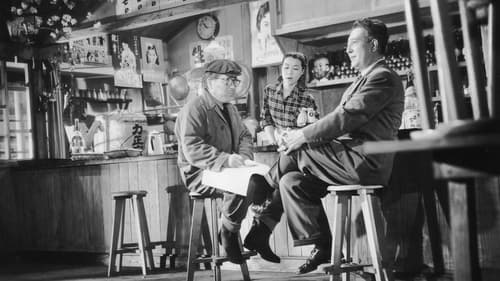
Yamaguchi
Takes place in one place, a beer hall, over the course of one evening. Uchida employs this concentration of setting and time to fashion a microcosm for a group portrait of Japan. One by one, the regulars of the bar appear: the pianist who dreams of becoming a composer but has disappeared from the music world after a knifing; a stripper who had planned to be a ballet dancer; an elderly painter trying to make a living at pachinko, and who rues his art having been used for militarist propaganda during the war; a young waitress considering elopement; a colonel turned real estate broker who attempts to rouse the crowd in military song until he realizes the tune has been transformed by marchers in the street into a leftist chant. The "twilight" is more than just a time of day; here, it is a state of being, a suspension between past and present, between the camaraderie of the saloon and the harsh world outside.


Japanese film released to commemorate the 7th anniversary of Shintoho's founding.

Japanese war drama.

Baba Tokei
Jidai-geki starring Kanjuro Arashi

Buntaro, the president of a food trading company got tired of the day-to-day routine of life. The new secretary, Nobuko, suggested her "shacho-san" (the president) run away from the job. Nobuko took Buntaro to her home and introduced him to her own family as friend, "Sachio-san"...

Shôgo Yamamura

Mataji Uchida
Japanese drama film.

Japanese comedy film.

Tanuma Kandayuu is a high class samurai of the house of Nabeshima. He finds a lavish board of Go (a Chinese Board game) at Kinbei's store. He recommend Kinbei to offer it to his lord. Kinbei hesitates at first, since he knows the board has a mysterious legend surrounding it; it's believed that for every game played on the board, one death is required.

Japanese mystery thriller.

Japanese adaptation of Marcel Pagnol's play "Marius", set in early XXth century Japan.

A film dealing with the comings and goings of individuals in the immediate postwar period.

Brother-In-law Kohei
A newly hired daily newspaper writer covering the society beat receives an assignment to cover Tokyo at night by walking and observing it. He gets into the right frame of mind by dressing the part as a vagrant with not a penny to his name. He gets into trouble ending up at the police station slammer overnight. He has no material to write about and, with his assignment unfulfilled, faces a cross editor.

Tadashi Imai 1946 movie

Based on a short story by Dazai Osamu, produced under the national film law. The film's hero falls in love with the youngest daughter of a family he is visiting to arrange an engagement for his friend who has been drafted to fight in the war.

A bizarre murder at a hot springs resort threatens to disrupt an Edo detective's (Hasegawa) vacation. When his hot-blooded wife (Yamada) starts snooping around, however, he finds himself reluctantly drawn in to the case.

Set in Qingdao, China, a Japanese company locates an office there and begins work and cooperation with a local Chinese company for business. Many Japanese engineers also move to China, with their families, for the company in order to construct a canal. There are young Chinese resisting the Japanese in this area.

Vunoshin Narishima
What is marriage? Young couple in match-making wanted to know before they decide. They visited married couples of sisters and brothers. Love comedy in 1942.

Seiichi Oikawa
Adaptation of a novel by Nobuko Yoshiya that was serialized in "Shufu no tomo" between 1939 and 1940.

Hajime Munechika
1941 Toho adaptation of Natsume's novel.

Feature film.

A Japanese army engineer (Hasegawa) on the mainland must put his personal feelings for a beautiful Chinese woman (Ri) aside if he is to succeed at building a highway through the "bandit"- (aka anti-Japanese militia-) infested hinterlands.

In a village in Manchuria, a group of Japanese settlers struggle against the elements to create wet rice paddies.

Nobuyoshi Kumakata
Tomotaka Tasaka's A Pebble by the Wayside (Robo no Ishi), made in 1938 and taken from a Yuzo Yamamoto novel, takes place around 1902, was about a young boy brought up entirely by his mother since his drunken father is never home. An intelligent teacher wants to send him to middle school, but instead the father apprentices him to a clothing store to which he is in debt. The mother dies and the boy is forced to quit work when his father insults the store owner. Later the boy goes to Tokyo, but only to continue his hardships. First he is forced to do a maid's job at a boarding house and later is used by an old woman to steal at funerals. Finally he is rescued by the teacher, whom he meets in Tokyo.

One of Uchida’s early sound films, Unending Advance is based on a curious story by Yasujiro Ozu, in which an examination of the quotidian problems of a middle-aged salaryman and his family segues into an idyllic dream of an implausible future. The surviving print, although incomplete, offers an essential glimpse into Uchida’s prewar period, when he was associated more with realist dramas than with the period films that dominated his work after the war.

Henry
항구 도시 요코하마의 카톨릭 학교를 다니는 스나코는 자신의 가장 친한 친구 도라가 사랑하는 헨리를 가로채자 질투에 휩싸여 그녀를 죽이려 하다 실패하고 만다. 이후 게이샤가 된 그녀는 우연히 결혼한 이 둘을 만나게 되고 세 사람은 다시 질투와 애증의 관계에 빠지게 된다.
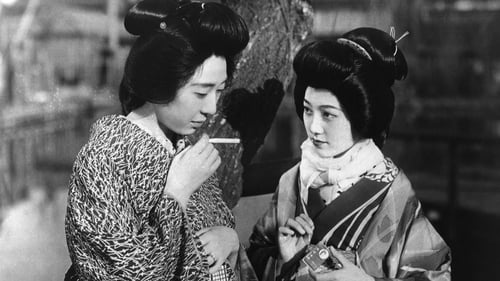
Guest
키쿠에는 자신을 희생해서 아들 요시오를 홀로 키우지만 요시오는 언제부터인가 게이샤인 어머니를 부끄러워하며 나쁜 무리들과 어울리기 시작한다. 그를 사랑하는 아름다운 게이샤 테루기쿠는 갱 멤버로부터 그를 구출한다. 그러나 부모의 가난으로 자신의 누이동생이 팔려 갈 운명에 처하자 돈을 벌기 위해 그의 곁을 떠난다.

Japanese silent film.

Ryoichi
료이치와 치카코는 서로를 의지하며 사이좋게 지내는 남매이다. 하지만 치카코는 낮에는 작은 회사에서, 밤에는 술집에서 일한 돈으로 오빠 료이치의 대학 등록금을 낸다는 사실을 비밀로 하고 있다. 한편, 료이치는 하루에와 데이트를 하면서 하루에의 오빠이자 경찰인 신요와도 가까워진다.

Yasuo Tsuda
A young couple is harrased by an uncle.

Enatsu
This pair of gentle yet witty and inventive comedies from the director of The Neighbour's Wife and Mine typify both the formal experimentation of early Japanese sound cinema and the social milieux that Shochiku tended to depict. 'Virtually plotless, and feeling more like comic sketches than fully developed stories,' writes Arthur Nolletti, Jr, 'these light comedies, or farces, take a wholly trivial matter (often a socially embarrassing situation) and use it as a springboard for a succession of gags.' Much of the films' distinction comes from the wit of Gosho's direction, the imaginative use of the new sound technology and the charm of the acting, particularly of the heroines (Kinuyo Tanaka in Bride; Hiroko Kawasaki in Groom). Yet in both films, Gosho finds room for some shrewd observation of character and environment, subtly exploring the values and assumptions of the suburban petit bourgeoisie.

Tetsuo Horino
여자 한명을 둘러싸고 펼쳐지는 남자 두명의 우정 드라마. 사장 아들인 테츠오는 친구인 쿠마타, 시마자키와 즐거운 학생 생활을 보내고 있었는데, 부친이 갑자기 돌아가시어 회사를 이어받게 된다. 그러나 쿠마타의 배려로 취직을 하게된 친구들이 사장인 쿠마타에 대하여 비굴한 태도로 대하게 되는데...
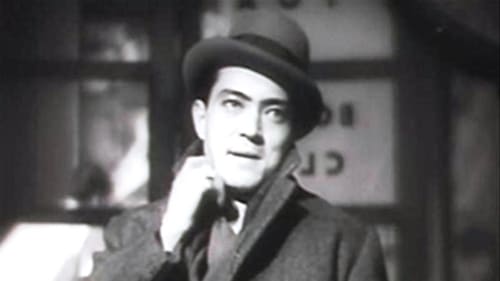
Shige
Early Japanese sound film, a remake of Josef von Sternberg’s DOCKS OF NEW YORK set in Yokohama.

Yuzuru
Part two of Shimizu's major silent Seven Seas, a family drama of the intertwining fates of the rich, decadent Yagibashis and the far less prosperous Sone family.

Yuzuru Yagibashi
The film is a lengthy work interweaving characters from different backgrounds and social strata in a narrative centered around the experiences of its heroine, Yumie Sone. Over two hours long, Seven Seas was released theatrically in two parts, with the first part entitled "Virginity Chapter" coming out in December 1931, while the second part, "Chastity Chapter," followed in March 1932. Near the beginning of the narrative, at a garden party given by the wealthy Yagibashi family in Tokyo, Yumie meets Takehiko, the Yagibashis' playboy son and the brother of Yumie's fiancé, Yuzuru. Yumie, a young middle-class woman, lives with her ailing father, a retired ministry official, an older sister, and a younger sister still a child (played by a very young Hideko Takamine). Takehiko, who has just returned from a trip to Europe, is attracted to Yumie and contrives to have her stay overnight at his family's mansion where he takes advantage of her.

Directed by Yasujirô Shimazu.






























